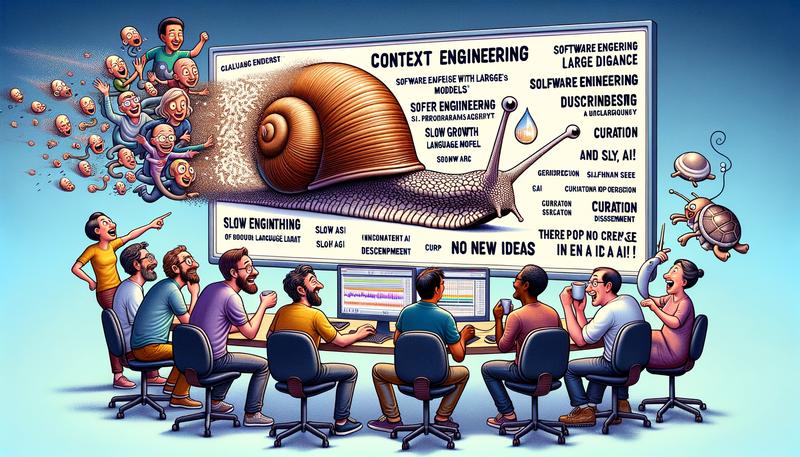In this blog post, I explore a collection of thought-provoking articles and topics. From the emerging role of Context Engineering in AI and the realistic future of software engineering with large language models to a deep dive into why the AI revolution will be slower than anticipated, there’s a lot to ponder. Plus, insights into the significance of curation as a new form of intelligence and why even powerful tools might not hold all the answers. Dive into these intriguing reads with me!
- The New Skill in AI is Not Prompting, It’s Context Engineering: Context Engineering is the new skill in AI. It is about providing the right information and tools, in the right format, at the right time.
- Software engineering with LLMs in 2025: reality check: How are devs at AI startups and in Big Tech using AI tools, and what do they think of them? A broad overview of the state of play in tooling, with Anthropic, Google, Amazon, and others
- The AI Revolution Won’t Happen Overnight: AI will transform industries. However, this transformation will happen on enterprise time: longer, slower, and with far more friction than most expect, and much slower than Silicon Valley is selling. Right now, companies are getting six fundamental things wrong about how AI will create value and how long it will take—and risk wasting resources, overpromising results, and eroding trust. 1) AI’s real impact will take much longer than we think. 2) We’re being wildly optimistic about enterprise AI adoption. 3) The market is overestimating the value of AI companies. 4) The real money isn’t in the models. 5) We’re over indexing on startups. 6) We’re obsessed with generative AI but it’s not the future. Enterprise leaders need to be asking fewer questions about what AI might do—and more about what it’s actually doing in your business.
- Taste Is the New Intelligence: Why curation, discernment, and restraint matter more than ever
- Toolmen: Even the best weapon is an unhappy tool.
- There Are No New Ideas in AI… Only New Datasets: LLMs were invented in four major developments… all of which were datasets
